
Like the children’s book so famously says, “Everyone poops.” And babies poop a lot, so we come to understand that fact early on in parenthood. But there’s nothing quite like what you’ll encounter as a mom of a baby or toddler who is constipated. If you’re anything like I was as a new mom, when my daughter had her first bout with constipation, I had no idea what was happening. She was screaming in pain, but I couldn’t figure out where her body was hurting. And she didn’t want to walk or move, but there had been no slips, falls, accidents … so we called her pediatrician and went to the doctor’s office that afternoon.
The verdict? My 6-month-old was constipated. She had not pooped in two days, which was rare, but I thought for sure, it would just happen. As it turns out, constipation in babies and toddlers is common, especially at around the point when they’re starting to eat solids.
Let’s talk about constipation, how we can diagnose it for our babies in simple situations, and great natural ways to relieve constipation for kids.
What Is Constipation?
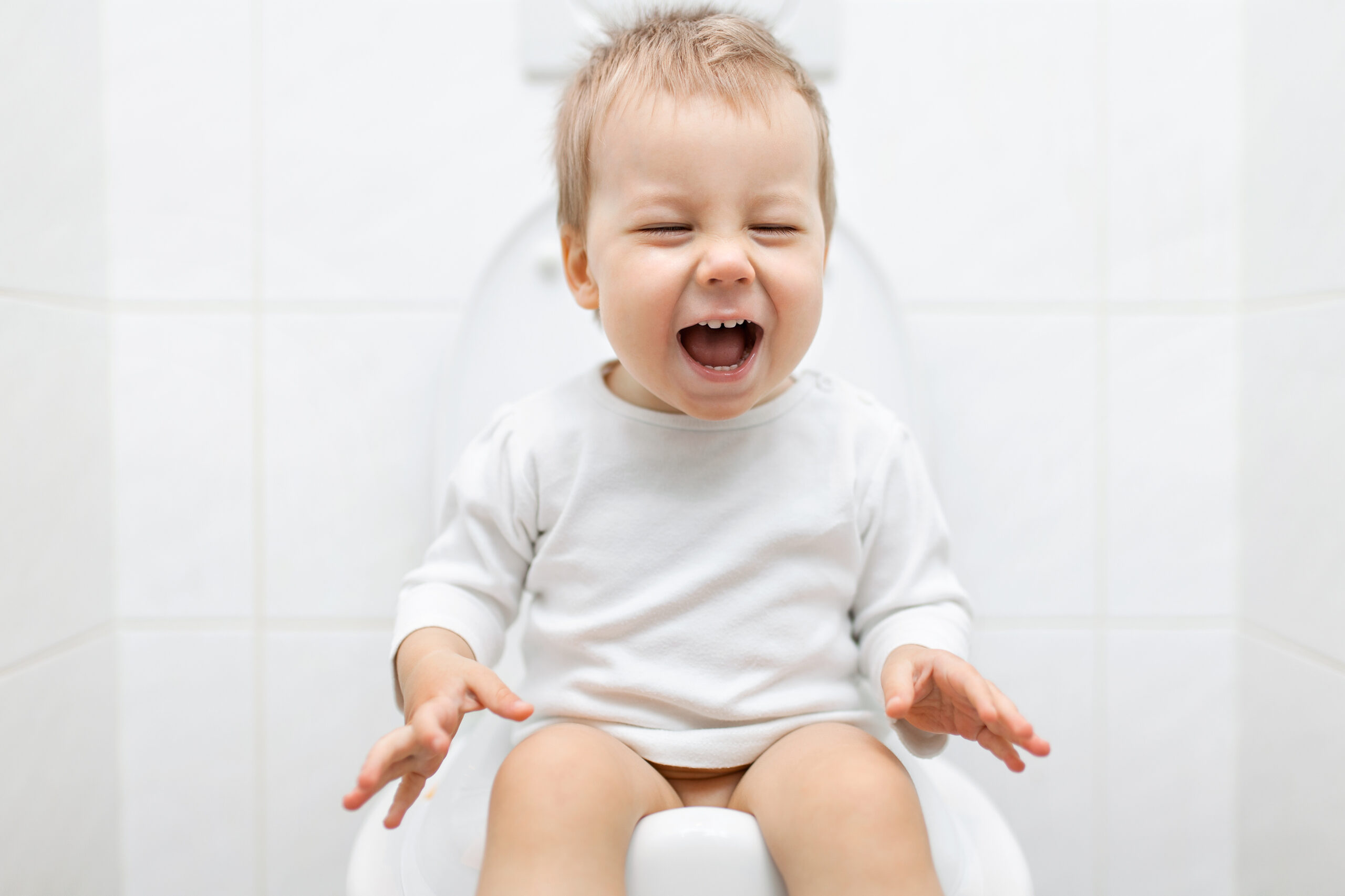
Yes, babies poop a lot and as parents we look to our babies diapers as a sign of their good health. When your baby poops regularly, it’s a sign that she is getting enough to eat. We generally look for them once a day during their first month of life, three to four times a day for babies 0-4 months old, then back to once a day when solid foods are introduced. But if your baby isn’t pooping regularly or is having trouble pooping, she may be constipated. Constipation refers to the compactness of the stools and the difficulty passing them, not the frequency of bowel movements.
What Causes Constipation in Babies & Toddlers?

Babies can get constipation for a variety of reasons, ranging from changes in diet to emotional distress. It takes a bit of trial and error, but once you can figure out the possible causes of the constipation, you’re more able to relieve and prevent constipation in your baby. According to Ask Dr. Sears, the following can cause constipation in children: new foods or milks, emotional distress, insufficient water consumption, insufficient fiber consumption, dairy products like cheese or yogurt, too much of the ABCs: applesauce, bananas, cereal. It’s rare that it could be a more serious problem, but constipation can be a sign of a thyroid condition or cystic fibrosis.
Signs of Constipation
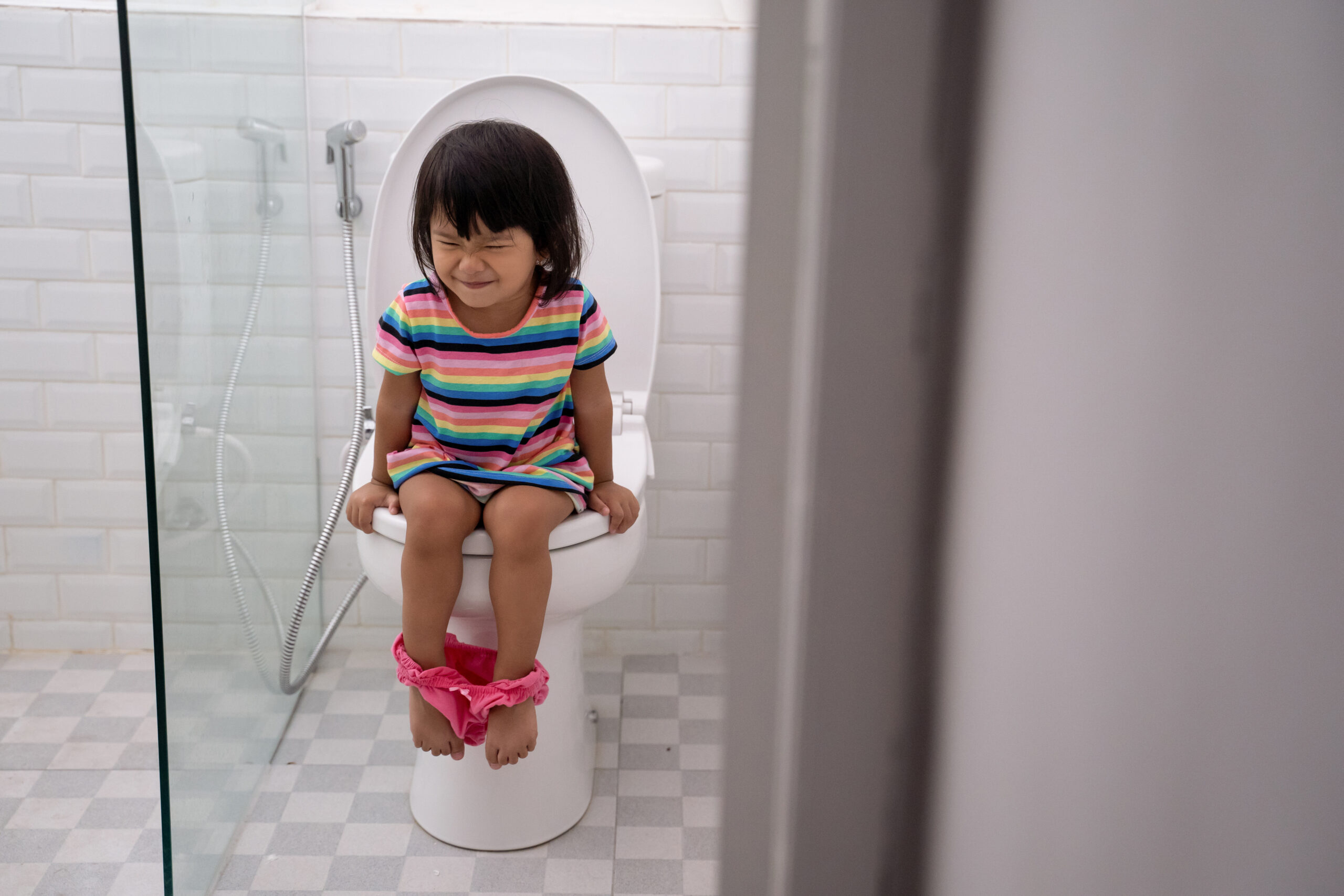
If your baby isn’t pooping, that’s the most obvious sign he’s constipated. Luckily, it’s not the only sign, so you can better assess and help him. Here are some physical symptoms that your baby might be constipated: arching the back, tightening the buttocks, a firm belly that is painful to the touch, pellet-like stools, hard stools or stools that are difficult to pass, straining for 10 minutes or more without success. You’ll also notice your little one crying for what seems to be no reason, refusing to eat and making straining faces.
While constipation in children is uncomfortable and sometimes painful, it’s usually temporary. But chronic constipation — which is when these difficulties persist for several weeks or months — may lead to complications or signal an underlying condition. Even when you’re potty training, you’ll notice children with chronic constipation will complain of pain while having a bowel movement and feeling like their bowels are blocked or that they can’t completely empty their bowels. The Mayo Clinic advises you should take your child to a doctor if the constipation lasts longer than two weeks or is accompanied by a fever.
Natural Ways to Help a Child Poop
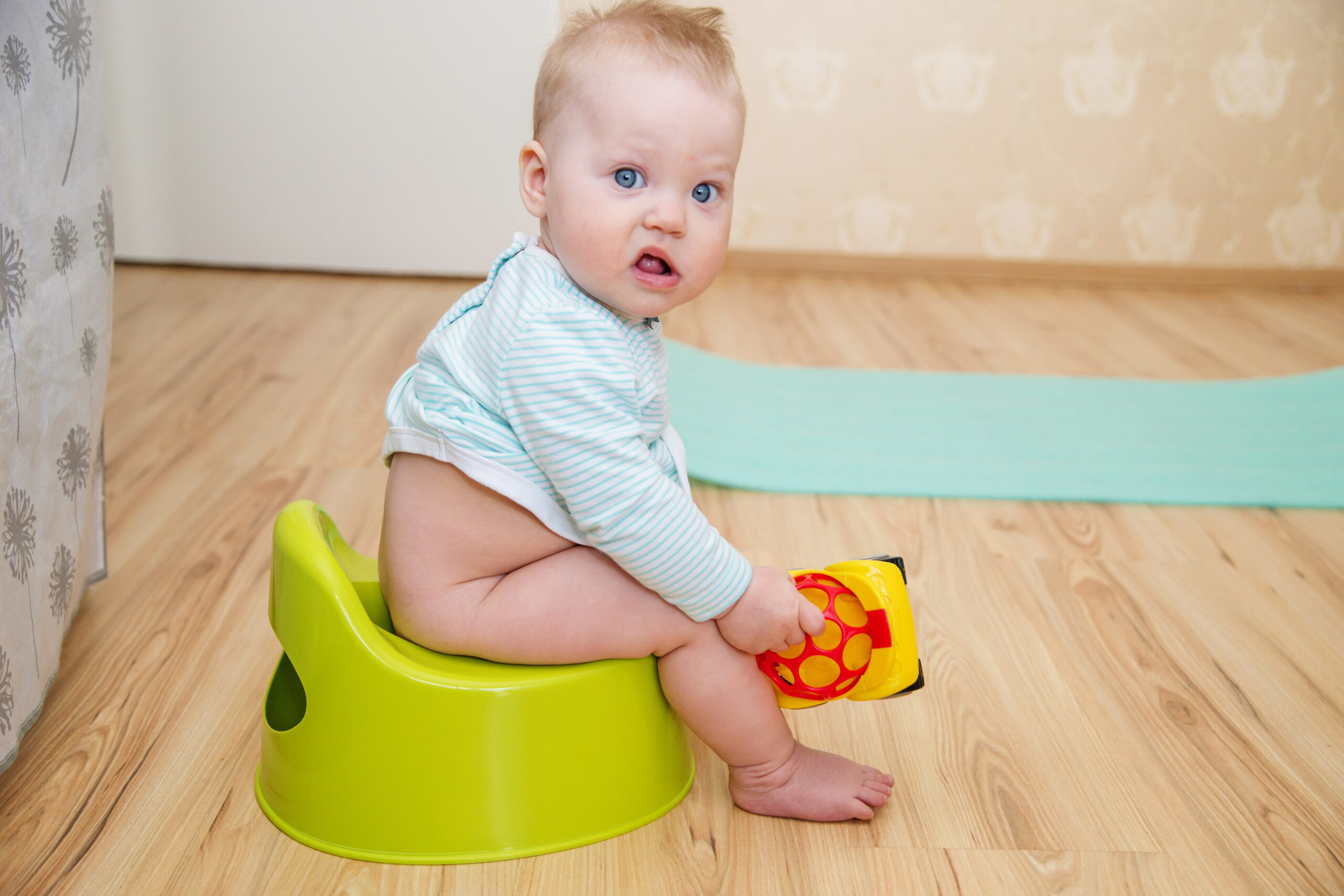
Our pediatrician is always encouraging of natural ways to solve any issues that can be easily remedied, so his suggestion was to add some apple juice diluted with water to her diet (which worked). And he also recommended water with a very little bit of brown sugar (which also did the trick). These sounded weird, but they’re common natural ways to relieve constipation for kids.
Please talk to your pediatrician before trying this, but here’s the basic recipe and dosage:
Take 1/2 teaspoon of brown sugar and add it to one ounce of cooled boiled water.
Offer this to your baby three times a day, directly before feeding, until their poop is soft, and then stop. Brown sugar is recommended because it contains molasses, but you can also use white sugar.
Foods Can Ease Constipation
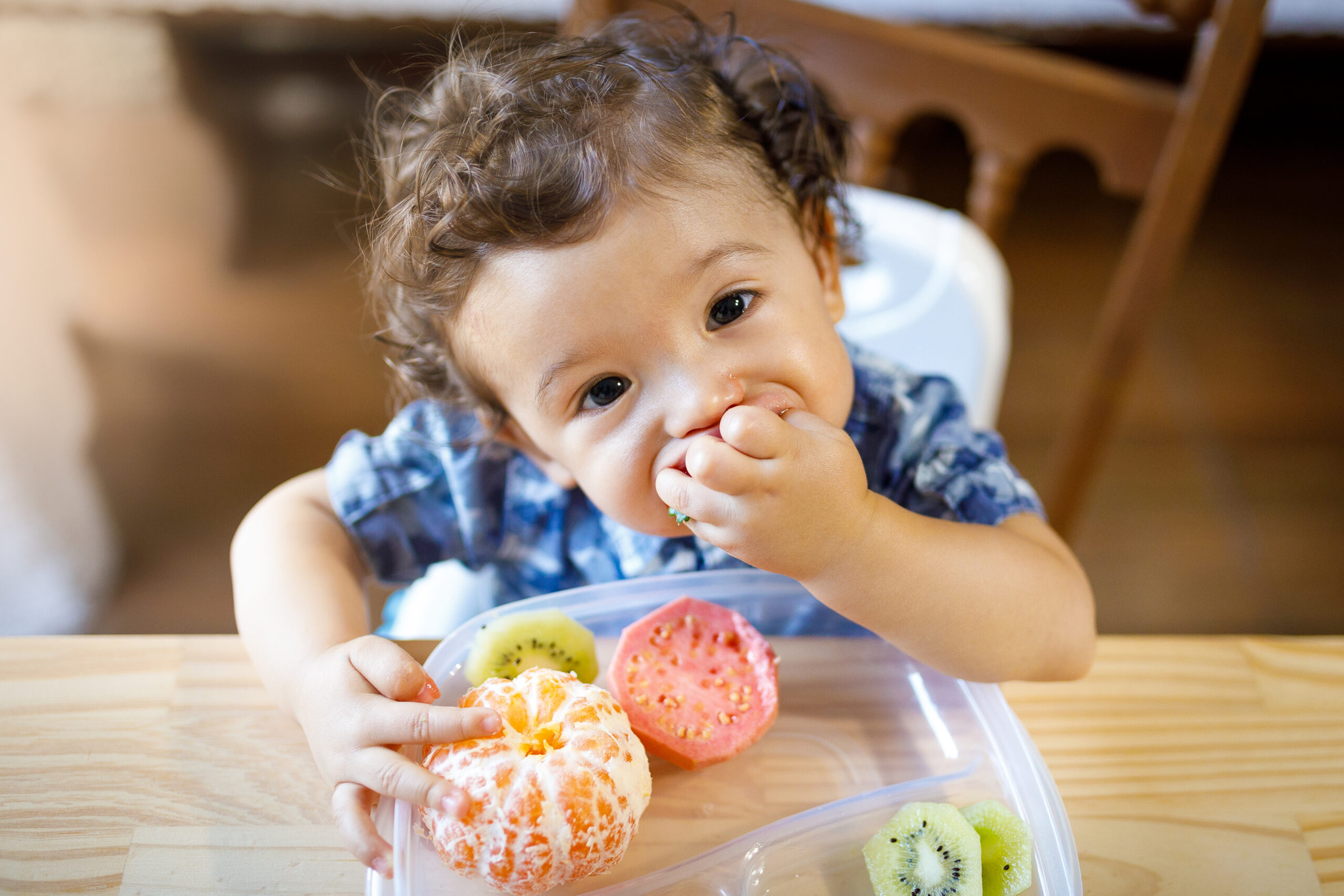
First, make sure your little one is eating low-fat, non-binding foods that are high in fiber. Think potatoes, raspberries, whole-wheat pasta, avocados, and pears. Also try some prune juice mixed with the apple juice. Because fiber is ingested, but not digested, it adds bulk to the stool that makes it passing through the digestive system that much easier.
Natural ways to relieve constipation for kids are the best because they can be incorporated into their daily meals and even hidden if necessary. Some of our favorite foods to ease constipation include:
- Adding healthy fats to your child’s diet to help keep moisture in stools. Some suggestions include coconut oil, full fat coconut milk, avocado, flax oil, nut butters, and fatty fish like salmon. Please consider your child’s age, allergies, or other restrictions when adding these foods to their diet. A tablespoon or so of these can be added to their smoothies without much detection.
- Stock up on water-rich produce like melon, berries, bell peppers, pears, mangoes, citrus, cucumbers, and grapes. These are great options if your little one doesn’t love to drink water.
- Include fiber-rich foods, such as whole grains like oatmeal and peanut butter in your toddler’s diet, but use them with a lot of water, healthy fats, and water-rich foods to help the digestive system work well. Otherwise you may make the situation worse.
Move That Little Body

Help him move his body a lot during the day and that will help move those other things along, too. Movement and activity can help stimulate your baby’s intestines.
- Moving his legs gently in a bicycling motion can get your baby’s bowels moving and may produce a bowel movement.
- We know that tummy time is an important part of development for all babies, but tummy time can also let gas go and may stimulate a bowel movement. Score! Put your baby on her tummy on a clean floor or across your lap for 20 minutes to see if it helps.
- A massage can calm and comfort any baby. Massages also move trapped gas in your baby’s belly and help move her bowels. Try rubbing your baby’s belly in a clockwise motion to see if it helps.
- It’s also suggested to massage your baby during a warm bath. As the baby relaxes, it may also release his bowels. This is messy, but may be effective at relieving his constipation.
- If your kids are a bit older, encourage them to run, jump, and do yoga! Do bicycles with them on their backs, squat down and stay in a crouched position for a while.
Potty Time = Party Time
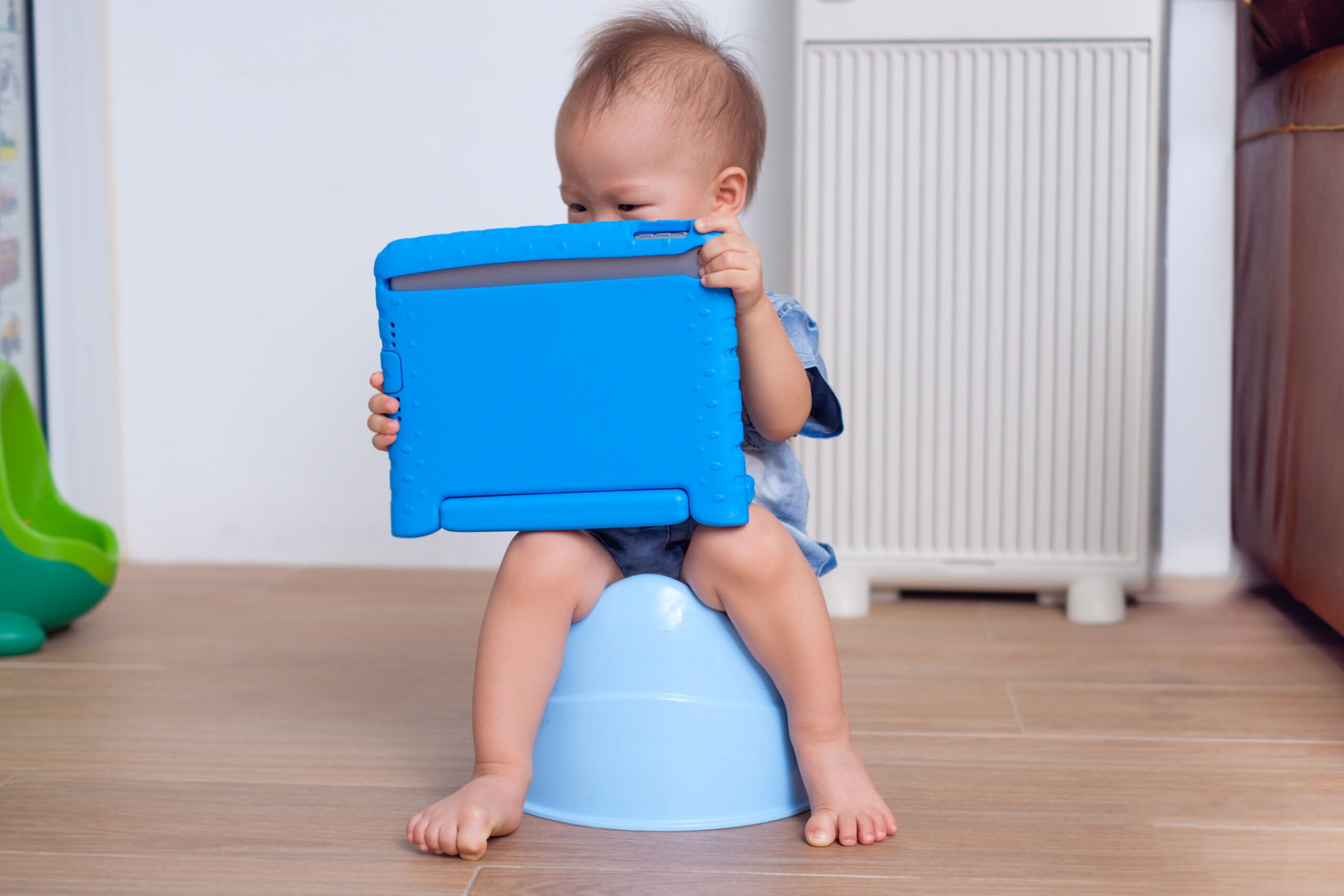
OK, potty time may not feel like a party. But if you encourage your child to poop when he needs to poop, instead of holding it in, you both will feel like celebrating! Help your child relax enough to go No. 2 by creating a relaxing bathroom and potty training situation by grabbing a few books, turning on some sing along songs, or even bring the iPad in to watch an episode (or two!) of Peppa Pig. Books are a good tool to help your toddler relax on the potty. Making a regular potty routine will give your child regular chances to go during the day. A daily schedule — often after breakfast or before dinner — can be a good way to build expectation and the normalcy of pooping.
Water Babies
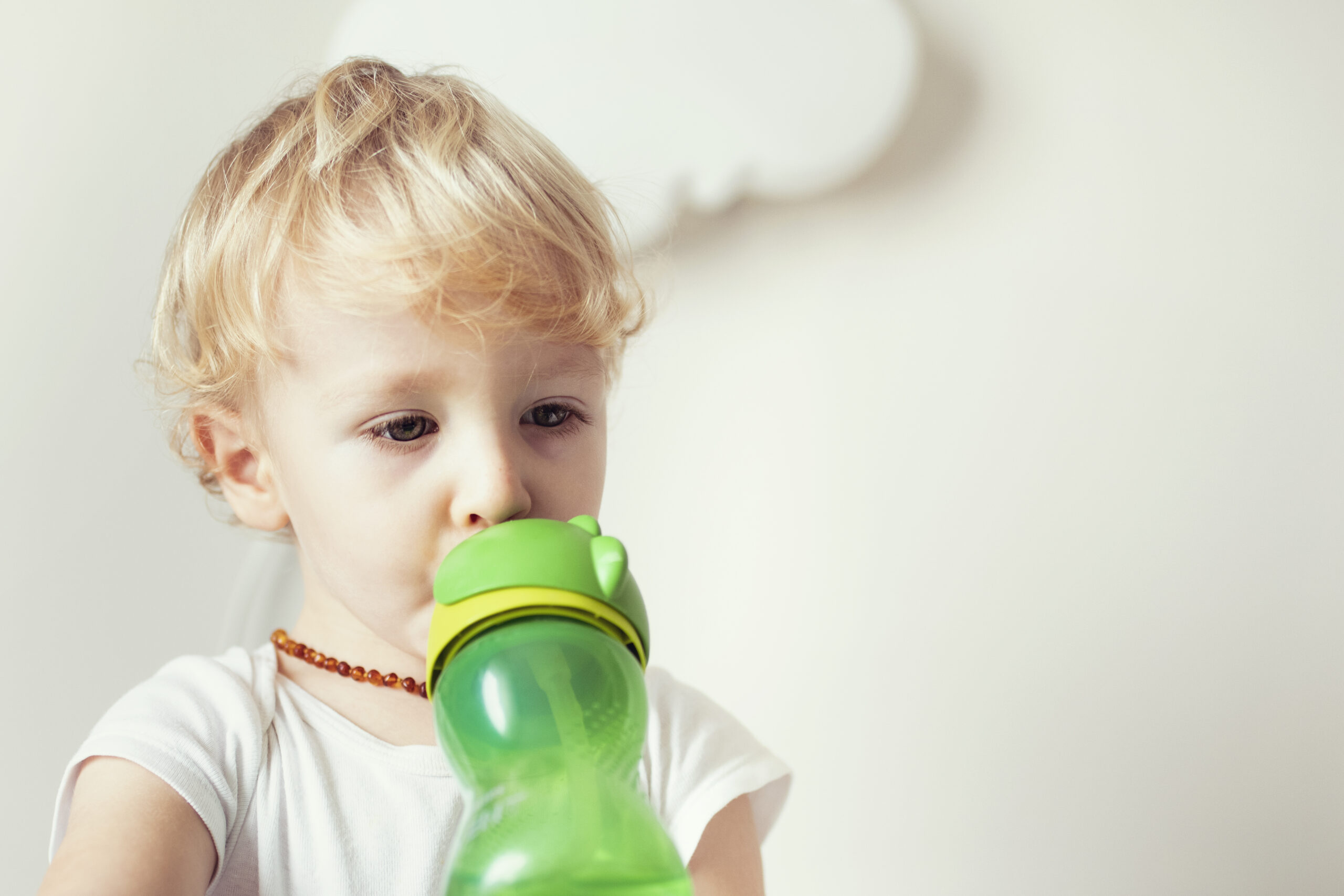
Drinking water sounds like an obvious solution, but it’s especially important for your baby to stay hydrated if she's constipated. Getting your kid to drink more water may include having it at meals and snacks whenever possible and offering it between meals, too. The more hydrated her body is, the better her organs function, including her intestines and bowels. Whether she’s getting breast milk or formula helps, too, especially if you’re incorporating solid foods into her diet. Sometimes it’s the new foods being introduced into her sensitive system that can cause the binding.
When To Talk to Your Doctor

Talk to your child's doctor if your child has constipation that isn't improving with diet changes or is causing pain, vomiting, or decreased appetite. The doctor can diagnose the problem and offer alternative dietary or medical treatments.



